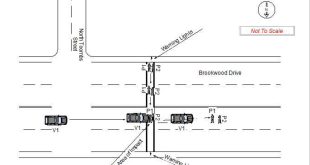The holidays are traditionally a time for fellowship, family, vacation . . . and shopping, for oneself and for others. As many have observed, the holidays have become increasingly commercialized, and holiday tradition seems to require gift-giving. Considering the nation’s troublesome economic situation, though, many people are concerned about affording gifts. However, stores are capitalizing on people’s concern, offering deep discounts on hot items. The question is: Can holiday shopping be saved from a poor economy, or will the poor economy save the holiday from commercialization?
Holiday shopping often begins with post-Thanksgiving sales. The day after Thanksgiving, called Black Friday because it has traditionally helped to put retailers “in the black,” is a major day for both retailers and anxious gift-buyers. A PriceGrabber.com survey revealed that 45 percent of consumers were planning to go shopping on Black Friday and Cyber Monday, which is the major discount event for online retailers.
According to Randy Austeinbein, Atlanta Walmart Customer Service Representative, the biggest gifts this year are primarily electronics, including iPods, digital cameras, LCD HDTVs , the Wii and Wii games, and Amazon.com’s Kindle 2 Wireless Reading Device. Six of the top ten most-sought products this Black Friday were in those categories, according to PriceGrabber.com.
Overall spending on Black Friday this year was $10.66 billion, only 0.5 percent more than last year, and total spending for the weekend was $41.2 billion. However, there was a significant increase in the number of shoppers from last year, suggesting that while people felt they had less to spend, more people sought to take advantage of steep post-Thanksgiving discounts. A National Retail Foundation survey showed that 195 million shoppers hit stores on Black Friday, up from 172 million.
The increase in online sales, however, may make up for the relatively small increase in overall sales. According to the NRF survey, 28.5 percent of shoppers did their shopping online, leading to a 35 percent increase in average spending per consumer, from $126.04 to $170.19, according to Web marketing analyst Coremetrics. In all, there was an 11 percent increase in online sales on Black Friday.
What do we make of all this? It seems that consumers are desperately seeking to meet their gift quota, but have to resort to fighting for discounted items and maximizing their Black Friday spending, lest they spend more on gifts overall. Not that the Black Friday gift shopping rush hasn’t happened before, but clearly, the pressure is really on this year for both consumers and retailers, and consumers are being sucked in by retailers’ large efforts to put themselves in the black.
Perhaps also indicative of shoppers’ efforts to contend with the struggling economy was the increase in gift card purchases on Black Friday, up 21.2 percent from 18.7 percent. Many people attempt to complete their holiday shopping during post-Thanksgiving sales, and as gift cards are not discounted, the increase may suggest that shoppers are hoping to cut down on holiday spending by buying gift cards rather than other items. The Accenture Holiday Shopping Survey revealed that 79 percent of shoppers are planning on buying gift cards. VSU students agree:
“I am not really good at buying Christmas gifts for anyone, so I buy everyone in my family gift cards, because you can never go wrong with a gift card and it gives them a chance to pick whatever they want,” said Darrien Lewis, junior Criminal Justice major.
“I buy the men in my family gift cards to like Home Depot or Lowe’s,” said Amanda Gilbert, sophomore English major.
But is this the Christmas people want? Whether they’re “hot items” or gift cards, the thought is there, but in a struggling economy, it only causes more stress and resentment to try to make everyone happy while keeping your wallet fat enough to keep your house warm and your belly full.
Here’s a suggestion: Go on and boost the economy by doing some holiday shopping. But rather than using holiday discounts as an opportunity to save Christmas, save the holiday by accepting that you can’t spend as much, and make your own unique, thoughtful gifts rather than
However, the Accenture survey showed that shoppers were planning to cut back on gift spending on friends (52 percent), extended family (51 percent) and spouses/partners (49 percent). Hopefully this means that people are willing to spend less on their loved ones and understand having to make the sacrifice; hopefully they will exchange more homemade or thoughtful gifts rather than iPods and DVDs. The survey also revealed that only 35 percent were planning to spend less on children, and only 35 percent were planning to spend less on co-workers. Looks like shoppers are using their holiday dollars to keep alive a belief in Santa and keep good relationships in the workplace. I think those are all things we can celebrate.
Tags 2009-12-01 2009-2010 Brittany Briscoe Rachel Wayne
Check Also
Former President Trump travels to Valdosta to speak to press
Former President Donald Trump traveled to Valdosta on Monday to speak with the press about ...
 The Spectator The independent student newspaper of Valdosta State University
The Spectator The independent student newspaper of Valdosta State University




